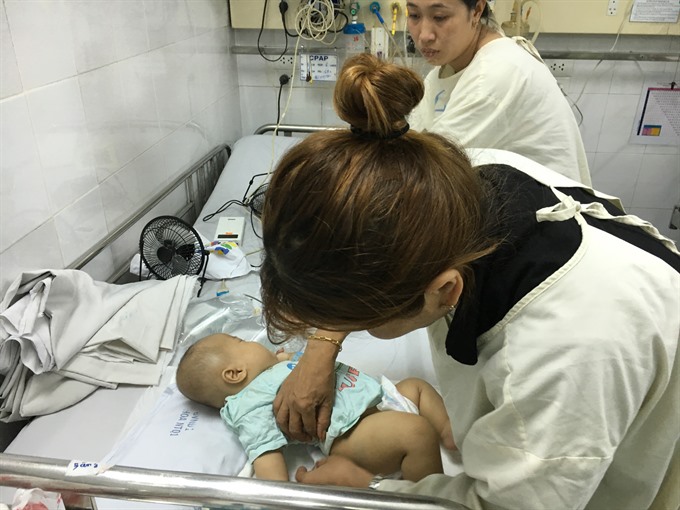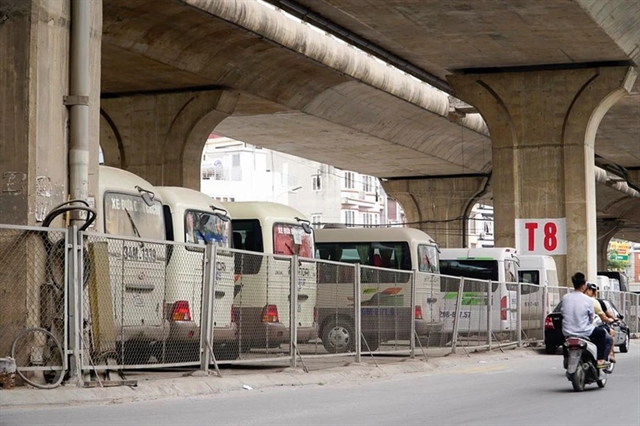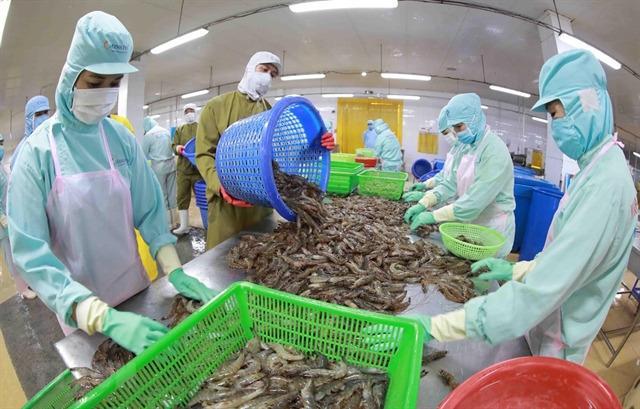 |
| A child with malaria is being treated at the HCM City Paediatrics Hospital 1. —VNS Photo N.L |
Viet Nam News HCM CITY- The Ministry of Health should resume supply of malaria drugs to hospitals in many provinces that have not had the disease for a long time, according to health experts.
The HCM City Hospital for Tropical Diseases has admitted a 55-year-old patient from the Mekong Delta province of Bến Tre who was brought from a local hospital after her health steadily worsened despite two weeks of treatment.
However, the local hospital did not have drugs to treat her malaria and had merely transfused blood.
Dr Nguyễn Hoan Phú of the HCM City Hospital for Tropical Diseases said the ministry should provide drugs such as Artesunate to provincial-level hospitals for treating malaria since the disease could return despite a long absence.
If patients with malaria are not treated in a timely fashion, they could get a severe form or drug-resistant malaria like the patient from Bến Tre, he said.
Besides, more training in malaria treatment should be provided to improve diagnosis, especially at grassroots-level hospitals, and ensure doctors do not fail to distinguish between malaria and dengue.
A 28-year-old man who returned from Angola was brought from a hospital in Đồng Nai Province to the HCM City Hospital for Tropical Diseases earlier this month with acute liver failure.
According to Sài Gòn Giải Phóng (Liberated Sài Gòn) newspaper, doctors at the Đồng Nai hospital had diagnosed him with dengue fever.
But doctors at the HCM City Hospital for Tropical Diseases said he had severe malaria.
Despite intensive care, he could not be saved, Phú said.
This year the hospital has admitted 113 patients with malaria, including 19 severe cases.
In November the city’s two paediatrics hospitals admitted four children from Đắk Nông and Bình Phước provinces with malaria.
Dr Trương Hữu Khanh, head of Paediatrics Hospital 1’s infectious and neurological diseases department, warned on his Facebook page: “[Doctors] have to be very careful in diagnosing. The hospital’s doctors did not think two children from Đắk Nông Province could get malaria because they had not seen patients with malaria for a long time.”
In the past malaria patients mostly used to be adults, but children are susceptible to getting severe forms of malaria and even die, according to the doctor.
The HCM City-based National Institute of Malariology-Parasitology-Entomology reported that 1,041 people were infected with malaria in the Central Highlands province of Lâm Đồng and the country’s southern region – the two places it monitors – compared to 1,422 last year.
Bình Phước Province had the highest number of patients, 810, followed by Lâm Đồng with 117 and Đồng Nai Province with 18.
According to the World Health Organization, malaria is a life-threatening disease, though preventable and curable, caused by parasites transmitted through the bite of infected female anopheles mosquitoes.
Last year there were an estimated 216 million cases of malaria in 91 countries, an increase of 5 million from 2015, while the number of deaths remained almost unchanged at 445,000, it said.
Symptoms usually appear 10 to 15 days after the bite, starting with possibly mild fever, headache and chills making it difficult to recognise as malaria.
But if not treated within 24 hours, P. falciparum malaria can progress to severe illness, often leading to death. —VNS
 Society
Society











